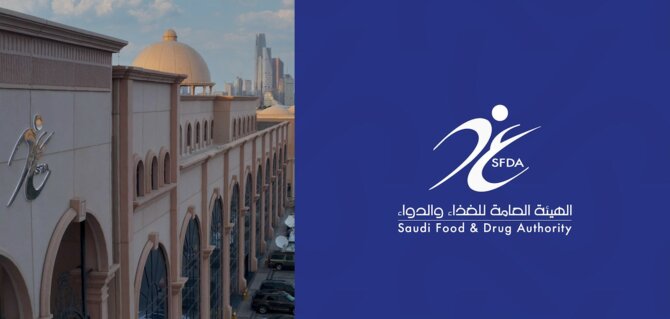Saudi FDA Approves Qalsody for ALS, Pioneering New Hope for Rare Disease Patients
Riyadh – In a landmark decision for rare disease treatment in Saudi Arabia, the Saudi Food and Drug Authority (SFDA) has approved the registration of Qalsody (Tofersen) for the treatment of adults with amyotrophic lateral sclerosis (ALS) associated with mutations in the SOD1 gene.
This approval highlights the Kingdom’s commitment to advancing healthcare innovation and improving patient access to cutting-edge therapies.
The Saudi Food and Drug Authority (SFDA) has approved Qalsody (Tofersen), marking a major step forward in treating adults with ALS linked to SOD1 gene mutations and expanding access to life-changing therapies in the Kingdom.
ALS is a progressive neurodegenerative disease that targets nerve cells responsible for voluntary movement, gradually causing muscle weakness, loss of mobility, and significant impacts on daily life.
While the condition is rare, patients and families affected by SOD1-linked ALS face unique challenges due to the genetic mutation producing a defective SOD1 protein, which disrupts normal cellular processes by failing to eliminate toxic byproducts.
Qalsody represents a breakthrough in treating this rare condition through antisense therapy, a novel therapeutic approach that uses small nucleotide molecules designed to bind precisely to the mutated gene’s mRNA.
By targeting the defective SOD1 protein at its source, Qalsody helps reduce its production and accumulation in nerve cells, potentially slowing disease progression and providing new hope for patients.
The SFDA emphasized that the drug’s approval followed a thorough evaluation of its efficacy, safety, and quality. Clinical trials demonstrated that patients receiving Qalsody experienced reductions in critical indicators of nerve damage, including neurofilament light levels, compared with placebo-treated patients.
Additionally, the concentration of defective SOD1 protein in cerebrospinal fluid decreased, confirming that the drug effectively targets the disease’s molecular root. While long-term benefits are still being assessed, early findings indicate promising outcomes for adults living with SOD1-linked ALS.
In terms of safety, the most common side effects observed during clinical studies included muscle and joint pain, fatigue, injection site discomfort, fever, and elevated protein levels in cerebrospinal fluid, which were generally manageable.
The SFDA noted that ongoing monitoring will continue to ensure patient safety while maximizing therapeutic benefits.
The approval of Qalsody is part of the SFDA’s Orphan Drugs Program, a strategic initiative aimed at accelerating access to innovative therapies for rare and hard-to-treat diseases.
By facilitating the availability of these critical medications, the program addresses unmet medical needs and reinforces Saudi Arabia’s dedication to improving patient care for conditions affecting fewer than five in 10,000 people in the Kingdom.
Health experts hailed the move as a significant milestone in the Kingdom’s healthcare transformation. The approval aligns with the Health Sector Transformation Program, one of the key pillars of Vision 2030, which seeks to enhance the quality and accessibility of healthcare services nationwide.
By integrating advanced therapies such as Qalsody into clinical practice, Saudi Arabia continues to position itself as a regional leader in medical innovation and rare disease treatment.
“This is a major advancement for patients living with ALS in the Kingdom,” said an SFDA spokesperson. “The approval of Qalsody reflects our ongoing commitment to facilitating access to safe and effective treatments, particularly for rare diseases where options have been limited.”
Patient advocacy groups also welcomed the approval, noting that it brings renewed hope to families grappling with the challenges of ALS.
The introduction of targeted therapies such as Qalsody underscores the importance of investing in cutting-edge science and fostering collaboration between regulators, healthcare providers, and pharmaceutical innovators.
With Qalsody now registered in Saudi Arabia, patients with SOD1-linked ALS have access to a therapy that not only addresses the underlying genetic cause of their disease but also represents the Kingdom’s broader ambition to enhance healthcare quality, innovation, and accessibility in line with Vision 2030 goals.
The SFDA’s approval marks a historic step forward, emphasizing both scientific progress and the Kingdom’s patient-centered approach to healthcare.
Qalsody’s entry into the Saudi market highlights a new era of hope for adults living with ALS and reinforces the nation’s position at the forefront of rare disease treatment in the Middle East.



